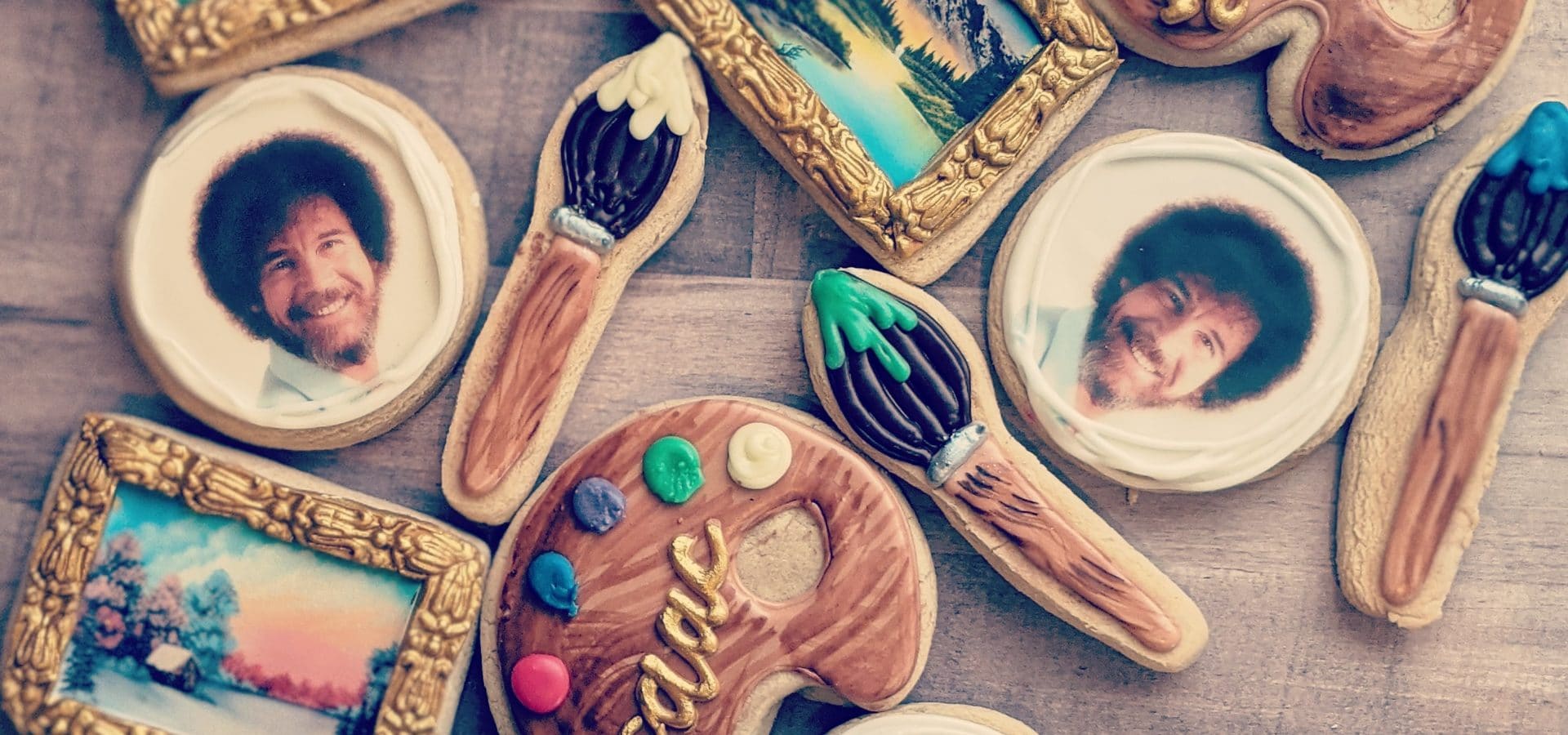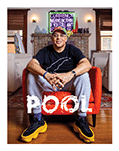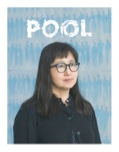The world will always need cookies, especially during a global crisis. CalArts alum Monica Hicks-Jenkins (Art 09) found that out last year during the pandemic. Even though the shutdowns disrupted most people’s lives, her Etsy business, Pent Up Cookie Company kept her busy, especially after April 2020 when everyone realized that this pandemic wasn’t going away any time soon.
“I just think I got really lucky and it worked,” she says. “I just never stopped doing cookies. Because I could have easily been, you know, making murals in people’s homes for a living and that would have really broken me down. So I just think I was in the right space at the right time.”
Hicks-Jenkins’ business model is straightforward and only a part-time endeavor for the weekends. Based in Chandler, Arizona, she works full-time as an executive assistant for a property condition assessment firm and is raising a 2-year-old daughter. But the cookies are one way she’s able to express her art. It’s not so much the making and baking of the vegan shortbread cookies, but hand-drawing and painting on them. Completing a batch of 12 takes her about three hours.
The cookie designs themselves are a variety of whimsical, smile-inducing art, from llamas wearing sweaters to Yo Gabba Gabba to break-up sayings. But custom orders are the most popular. Apparently penis cookies, which she won’t post on her Etsy page, go gangbusters around April and May, in time for the wedding season. She lovingly works on each cookie herself—even the penis cookies—because there’s no commercial kitchen buzzing with assistants.
Pent Up Cookie Company is an extension of Monica’s specialized dietary preference meal delivery company, Mack & Jane, which is named after her parents and started in 2010. She built the service to cater to those ill with cancer or medical issues and “basically anyone who wants healthy GMO-free organic food under the premise that we can heal through food.” In 2014 she became certified in integrative nutrition, to learn how a body uses nutrients to survive. “So I took classes in integrative nutrition to incorporate how the meals that I’m making for families or for people fit into their lifestyles and how they even psychologically handle food,” she says.
But the cookies started to take off and she needed a separate place so people could find them. “Etsy seemed like the easiest place to go as opposed to like having my own website or something and trying to drive traffic to it,” she explains.
And last year through the Black Lives Matter movement and calls to support Black-owned businesses, her cookies popped up on many “best of Etsy” lists, such as HGTV, Pioneer Woman, and Refinery29. “I’ve been really lucky to sort of be targeted in these funny curated lists and spaces,” Monica says. “It’s been really awesome.”
But despite a growing popularity, she doesn’t plan to expand her business to a brick-and-mortar operation. “One of the things about CalArts that I really love is that you have these really private conversations and spaces to share your work right,” she says. “And so moving that into a retail commercial space, you get a lot of people who don’t understand the process. They want the cookies tomorrow and they don’t really understand the art that goes into it or the preparation.”
Monica makes her own cookie cutters and even cuts the cookies by hand with an Exacto knife. “Obviously I’m making the icing, hand-dying the icing. You can’t buy certain colors, you know, so it’s all by hand. It is literally like curating an art piece every time, every time.
“I like drawing each of the little smirks on the foxes’ faces. I like drawing the little drips on the penis heads. And that might be partly why I work alone, too,” she explains. “It’s not even about income … or trying to build or scale the business. I just like to be close to each cookie. And just right now I really like it and I prefer it that way. It’s mine.”
One way the pandemic has affected her orders, however, is that instead of asking for one type of cookie design, she found that she received more requests for entire themes and experiences. “The forest themes are very popular. I’ve seen way more of those than I’ve ever seen before,” she says. “I think maybe people just want to escape or they want fantasies or experiences with their food and now that they can see what’s possible.”











